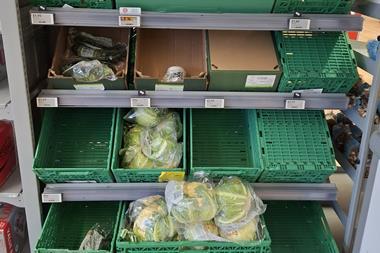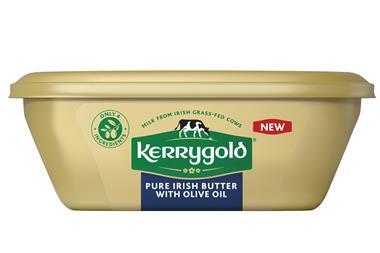The European Commission has given way to east European states preparing to join the EU, who want similar treatment to EU food producers for their farmers.
They want direct subsidies similar to those already costing the European taxpayer more than £17bn a year.
Independent experts expect the decision to create increases in production and surpluses. It will also add more than £5.8bn a year to the farm budget with a bill of close to £1.8 billion for subsidies in Poland alone.
The political necessity to apply the so called compensatory payments' in the five central and east European countries, expected to join the EU from 2003, has been made clear by EU Agriculture Commissioner Franz Fischler.
It would be impossible to apply the CAP system without them, he argues. Without additional direct payments, "it would be impossible to ask the acceding countries to apply the CAP's supply control instruments such as set aside or beef ceilings. Without these, serious production surpluses could result."
Officials in DGVI say Fischler had only recently conceded the compensatory payment system in the CEECs is inevitable. Both the Commissioner and his officials now believe that if set-aside and quotas are to be applied in the CEEC5 as they must be if even larger surpluses of grain and milk are to be avoided they can only be applied through the linked direct aid programmes.
This concession to the new members is seen by Brussels observers as the final convincing admission by Fischler and DGVI that the Agenda 2000 initiative has signally failed to meet the challenge of eastward extension.
The Commission believes the compensatory payments and their linked supply controls would curb production by making support payments conditional on respecting certain output limits.
To avoid alarming the treasuries of the EU15 member states, the Commission is likely to avoid mentioning the compensatory subsidy issue. It is preparing to publish its enlargement negotiation summary paper in two week's time.
{{PROVISIONS }}
Close menu
- Home
- Retail & Wholesale
-
Products & Suppliers
- Back to parent navigation item
- Products & Suppliers
-
Product Categories:
- Back to parent navigation item
- Product Categories:
- Alcoholic drinks
- Bakery
- Cereals & breakfast
- Cheese
- Chicken & poultry
- Chocolate
- Confectionery
- Crisps, nuts & snacks
- Dairy
- Fish
- Fresh produce
- Frozen
- Household
- Meat
- Own Label
- Sauces & condiments
- Seasonal
- Soft drinks
- Vaping
- Vegan & plant-based
- World foods
- Suppliers
- People
- Reports & Data
-
Topics A-Z
- Back to parent navigation item
- Topics A-Z
-
Popular topics:
- Back to parent navigation item
- Popular topics:
- Cost of living crisis
- Crime
- Deposit Return Schemes
- Finance
- Government & Regulation
- Health
- Inflation
- Loyalty
- Marketing
- Mergers & Acquisitions
- New Product Development
- Sourcing
- Supply chain
- Sustainability & environment
- Technology
- Ultra Processed Foods
- Vaping
- A-Z all topics
- Content by type:
- Events
- Ask iA (beta)
- Subscribe now
Sign in to comment on this article
Not logged in before? Register for FREE guest access today.
You will be able to:
- Read more stories
- Receive daily newsletters
- Comment on stories
Advert
















No comments yet